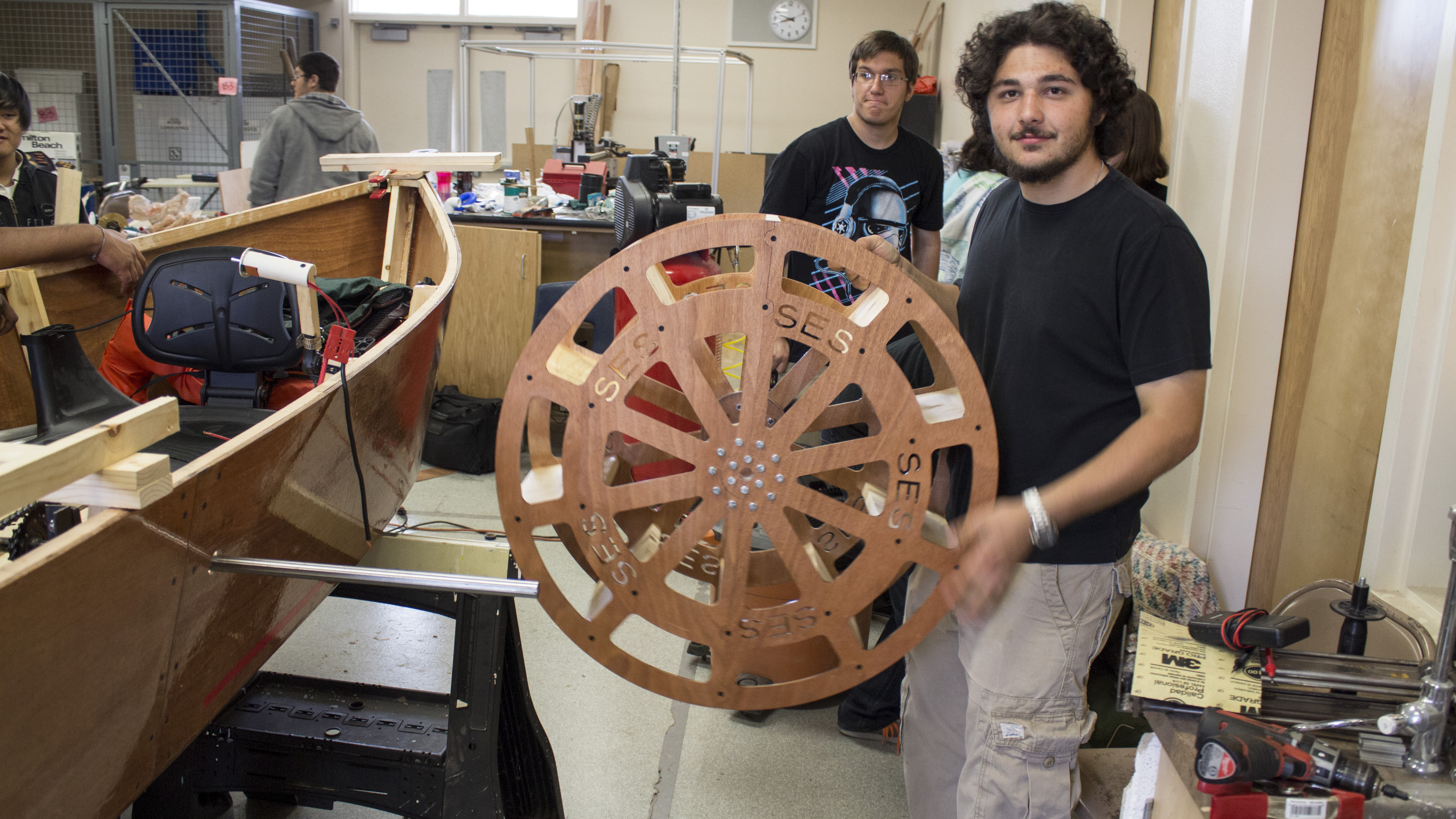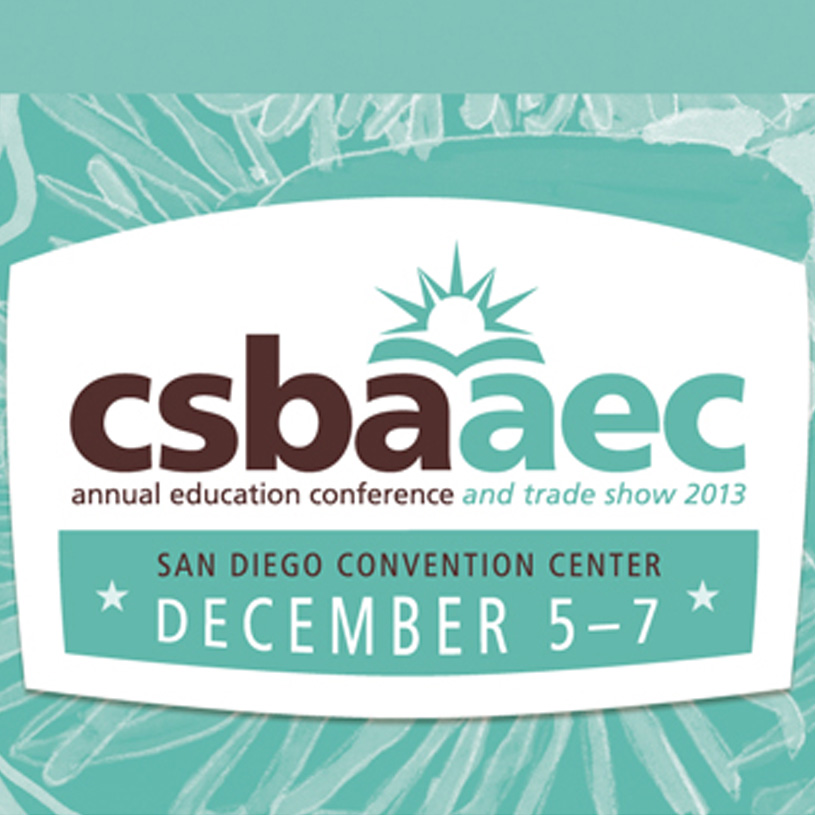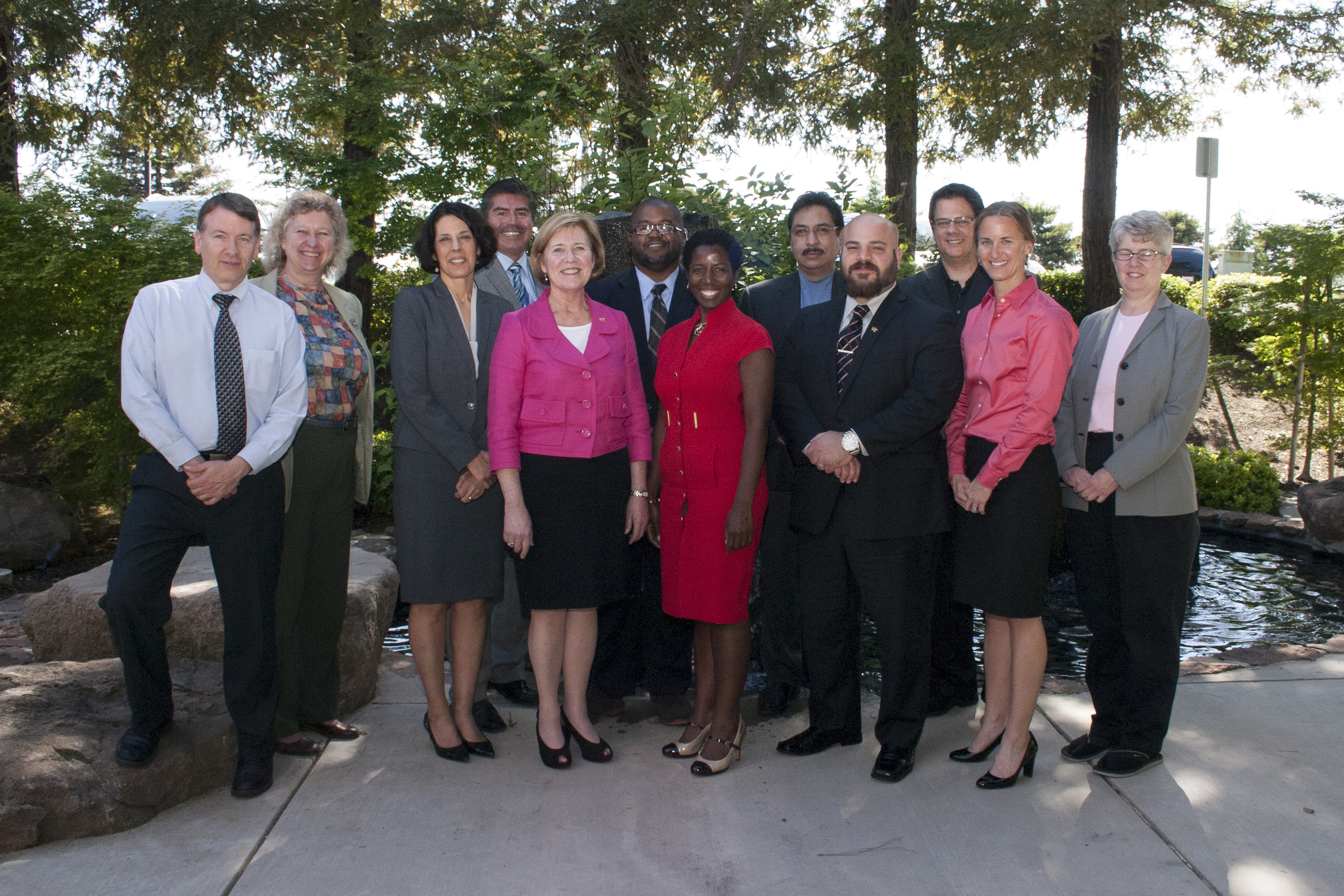The Linked Learning approach to high school reform is based on the principle of equity and has a fundamental goal of increasing postsecondary opportunities for California’s Latino, African-American, and low-income students. Common to the Linked Learning approach are the practices of project-based learning, career-themed courses and experience, and personalized support—and reducing the use of practices associated with limiting college prep access, such as tracking and lack of articulation across grade spans.
Category: Education and Training
Education and Training
Save the date for AEC: Dec. 5-7 in San Diego
Now’s the time to start making plans for CSBA’s Annual Education Conference and Trade Show, which runs from Dec. 3-5 in San Diego. Register and make your hotel reservations now to ensure your place at the convenient headquarters hotel, the San Diego Marriott Marquis & Marina, or one of several other local hotels. “There’s something for everybody here at this annual education conference. … It’s gonna be dynamite,” says Rowland USD board member Heidi Gallegos, a member of the conference planning committee, in a video on the conference site: aec.csba.org, which has registration details.
Membership shows strength in numbers
CSBA exists for and because of its members. Members rely on us to advocate for them, coordinate their advocacy, provide governance training, inform them and support them in ways that no other educational organization can match. At the same time, CSBA relies on members’ continued dues support and participation.
CSBA kicks off post-doctoral fellows program
The CSBA post-doctoral fellows program is a new collaboration between Drexel University and CSBA. The fellows program is the result of CSBA’s effort to establish partnerships with universities and other organizations. These partnerships help advance the policy leadership and priorities of CSBA by adding to CSBA’s human capital, expanding the high-quality information we provide to the members, and building understanding of governance issues and the needs of governance teams.
CSBA’s top 10 issues heading into Budget Conference Committee
This blog post highlights the top 10 educational actions/recommendations within the state Senate and Assembly budget proposals.
California schools tackle Common Core challenges
How are school districts and county offices of education preparing to implement the Common Core State Standards? It’s a daunting task, reveals the spring 2013 issue of California Schools magazine. To be ready for new common national academic standards, local educational agencies will have to dramatically change instructional methods and prepare students—and technological systems—to handle revolutionary computerized tests. This would be a tall order in the best of budgetary times. Yet despite years of harsh cuts in state support for public education, LEAs throughout the state are finding creative and innovative ways to meet the CCSS challenge.
Credential commission strengthens qualifications for interns teaching English learners
At their meeting in May, the California Commission on Teacher Credentialing attempted to wrap up a number of issues that have been in the works for many months. First up was the issue of adopting updated California Administrator Performance Expectations and draft standards for administrator credential programs. This work has been the subject of stakeholder meetings for more than a year. CSBA has been actively involved in ensuring that the standards provide training in working with boards, community and other elected officials as an important part in the success of a principal in his/her duties.
Torlakson’s good news: More students are graduating; fewer are dropping out
State Superintendent of Public Instruction Tom Torlakson had some good news for the California public education community: more students are earning high school diplomas and fewer are dropping out. According to the latest figures from the state’s new data system, which tracks progress of individual […]
Share your expertise at an AEC workshop or table talk
Each year, the Annual Education Conference planning committee asks CSBA members to submit workshop and table talk proposals for programming consideration. This peer-to-peer teaching model ensures that AEC programming is relevant to the current needs and realities of board members from across the state, and […]









